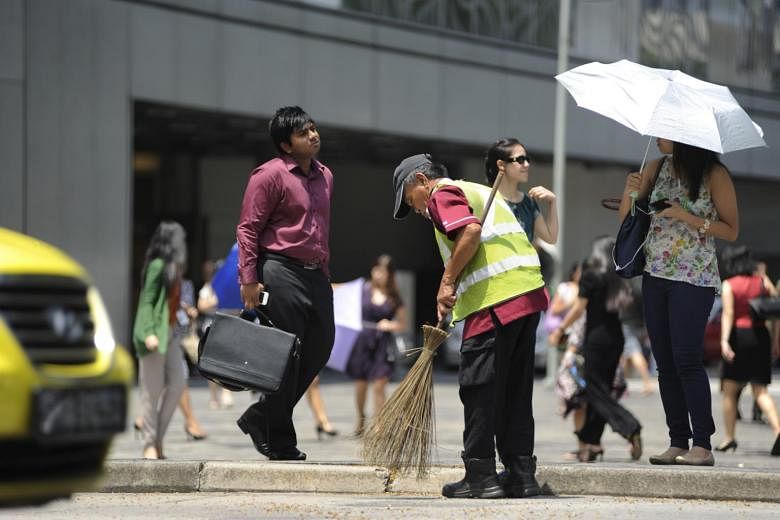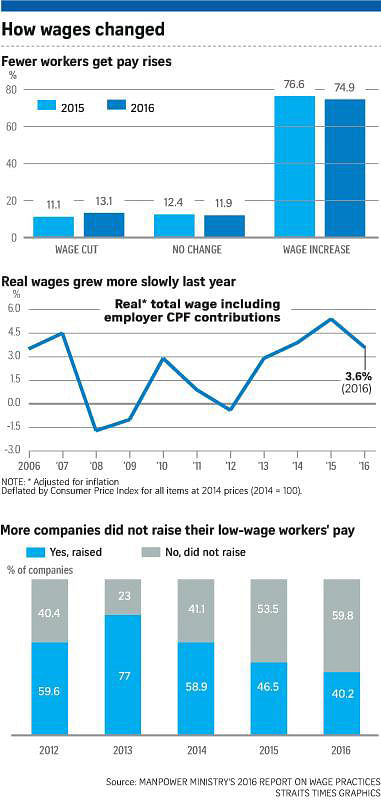A bigger segment of low-wage workers did not receive pay rises last year as more companies struggled to stay afloat, according to the Ministry of Manpower's (MOM) annual report on wage practices released yesterday.
About 60 per cent of companies with workers earning a basic monthly pay of $1,100 and below said that they did not give, or did not intend to give, these employees wage increases last year. In 2015, only 53.5 per cent of companies had said the same.
Companies cited poor business for not raising the pay of low-wage workers. Some said they were already paying the market rate.
MOM surveyed 4,800 companies with 10 or more workers and found that the less profitable a company, the less likely it was to increase the pay of its low-wage workers.
About half the profitable companies which did better last year than in 2015 granted pay rises. But this proportion plunged to just over a quarter among loss-making companies.
The National Wages Council's wage guidelines for 2016-2017 had recommended a built-in monthly pay rise of $50 to $65 - opting for a range instead of a fixed sum like in past years. About 21 per cent of companies gave their low-wage workers salary increases of at least $50, up from the 18.5 per cent in 2015 who stuck to that year's guideline of a hike of least $60.
Low-wage workers in the construction industry were the least likely to get a pay rise, with 73 per cent of companies in the industry saying they did not grant such hikes. Between 60 per cent and 70 per cent of companies in the transportation and storage, wholesale and retail trade, and accommodation and food services industries said likewise.
On the flip side, about 40 per cent of companies in administrative and support services gave low earners a built-in wage increase of at least $50 last year.
MOM highlighted this as significantly higher than the hikes of between 10 per cent and 27 per cent given in other industries.
This was mainly driven by the security sector, where more firms raised the basic wage of their low-wage workers to meet the requirements of the Progressive Wage Model (PWM). This model boosts the wages of low-wage workers by setting minimum pay levels for the cleaning, security and landscape sectors. Firms must abide by the wage guidelines to get licences to operate.
Singapore University of Social Sciences labour economist Walter Theseira said: "The Progressive Wage Model is probably more effective in improving wages than the moral suasion of the National Wages Council because companies have no choice (but to raise wages) if they want to get licences or government contracts."
He added that because the model covers several important groups, it puts upward pressure on wages for workers in other sectors.
"Raising the PWM when warranted will effectively increase wages for low-wage workers. The goal with the model was, after all, to set a de facto minimum wage in the covered sectors, which it has achieved," he added.



